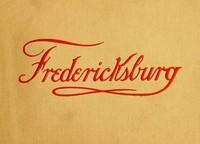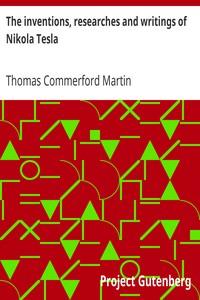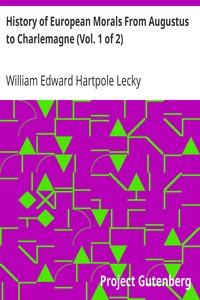|
|
Read this ebook for free! No credit card needed, absolutely nothing to pay.Words: 100573 in 24 pages
This is an ebook sharing website. You can read the uploaded ebooks for free here. No credit cards needed, nothing to pay. If you want to own a digital copy of the ebook, or want to read offline with your favorite ebook-reader, then you can choose to buy and download the ebook.

: Edward Hoare M.A.: A record of his life based upon a brief autobiography by Hoare Edward Townsend John Hume Editor - Church of England Clergy Biography; Hoare E. (Edward) 1812-1894@FreeBooksWed 07 Jun, 2023 It is a common practice amongst remarkable men to leave on record some of the circumstances which have led to the formation of the leading features of their character. But as the greater part of mankind is not remarkable, I think it just possible that some may be interested, and possibly some profited, by a few details of the life of one whose life has not been marked by incident so much as by abundant mercy, who has been led on step by step in the happy life of a parochial clergyman, and who at the close of it can say with reference to the past, "Surely goodness and mercy have followed me all the days of my life," and can add with reference to the future the blessed hope and determination of David, "I will dwell in the house of the Lord for ever." Of all the many mercies of my life the one that must ever stand first and foremost is the gift of my beloved father and mother. No words can describe the blessing of such parents, and I never can look back on the unspeakable privilege of such a parentage without adoring the sovereign grace which placed me under their parental care. When I observe the carelessness of some parents, the inefficiency of others, and the terrible training for evil to which I see multitudes of poor children exposed, I can only adore the sovereignty of God which on June 5th, 1812, committed me as a sacred trust to the very best of parents. My father, Samuel Hoare, was a banker in the City. Both he and my mother, Louisa Hoare, had been brought up in the Society of Friends, and had not formally left it at the time of my birth, so that I was registered by that body, and at the time of my ordination I had to apply to the Westminster Meeting for a certificate of my birth. But they were both greatly influenced by the ministry of some devoted Evangelical clergymen, such as the Rev. E. Edwardes of Lynn, and the Rev. Josiah Pratt, and I believe it was very soon after my birth that they were together baptised. We young people were therefore all brought up as members of the Church of England, though, as my father never completely lost his early Quaker prejudice against infant baptism, we were not baptised till about the age of fifteen, when we were considered able to judge for ourselves. But though there were great disadvantages in our home education, there were also immense advantages. It was not so effective as my dear parents hoped it would be in preserving us from impure and defiling information, and to this day I rarely pass the back door of what used to be my grandmother's house without a sense of loathing at the wickedness of her corrupt old butler, who on that spot did his utmost to pollute my boyish mind with filthy communication. Once a week, on the day of his holiday from the Bank, he used habitually to visit the schoolroom, and hear us repeat what we had learned during the week; and every Sunday afternoon he used to read with us some good religious book. I fear sometimes one at least of his pupils greatly tried his patience by supineness and inattention, but there were not then the same interesting books for young people that there are now, and such books as Wilberforce's "Practical View" or Doddridge's "Rise and Progress" were not calculated to attract the attention of a set of boys whose hearts were set on cricket. Then my dearest mother was one of the most lovely women of the day. Beautiful in countenance, gentle in her manners, pure in her thoughts, and most loving in all her intercourse with her family, she exercised over us all a most sacred and refining influence, and one of the most abiding sorrows of my life has been that, when she was teaching me something, I was so negligent that I caused her to shed a tear. Besides that, she had great intellectual charm. First-rate men such as Chalmers and Wilberforce delighted in her society. She was an excellent English writer. Her letters to her sons at College are perfect models of such compositions, and her admirable little book "Hints on Early Education," containing the principles on which she brought us up, continues to this day, passing through edition after edition, unsurpassed, if I may not say unequalled, by the many more modern efforts to throw light on that most important subject. It is to her that I am indebted for my first intelligent acquaintance with the Gospel. She used to have us boys to read the Scripture with her every morning at 7.15. Nothing can ever efface the lovely impression made on those occasions. There she used to be by a bright fire in her little room, in her snow-white dressing-gown, looking as pure and lovely as was possible in woman. I fear we boys were often late and sometimes inattentive. But I never forget one morning when she asked me if I knew what faith was, and, finding that I was utterly ignorant, proceeded to teach me those sacred lessons of a Saviour's grace which have been life to my soul from that day till now. Oh, mothers! what an opportunity you have of sowing a seed which will never die! Another great advantage in our home education was that we became interested in missionary work. Drawing-room meetings were not the fashion then as they are now, and my father and mother, without waiting for the fashion, threw open their large drawing-room to various devoted men. Thus we boys used to enjoy the no small privilege of becoming personally acquainted with many of the most devoted men of the day, as well as of being educated into an interest in missionary work. But parental influence was not all, for one of the tutors engaged for our instruction was the Rev. R. Davis, of Queen's College, Cambridge, a devoted young man, and deeply interested in the Church Missionary Society. It was he that enlisted the interest of my father and mother, so that I find, in turning to the report for the year 1820, the following entry, which was the sum-total of the then Hampstead Association:-- Having been one of those few children, I remember well the interest that the subject excited in our minds; and as that interest never died out in those beloved ones now gone to their rest, and as I trust it will never do so in myself, I realise how much I owe to that young man, and I see how much may be done by a young man who carries with him wherever he goes the unceasing desire to be engaged in his Master's service. Free books android app tbrJar TBR JAR Read Free books online gutenberg More posts by @FreeBooks
: Fredericksburg and Its Many Points of Interest by Kishpaugh Robert A - Fredericksburg (Va.) Guidebooks@FreeBooksWed 07 Jun, 2023

: Socialism Utopian and Scientific by Engels Friedrich Aveling Edward B Translator - Socialism@FreeBooksWed 07 Jun, 2023
|
Terms of Use Stock Market News! © gutenberg.org.in2025 All Rights reserved.






